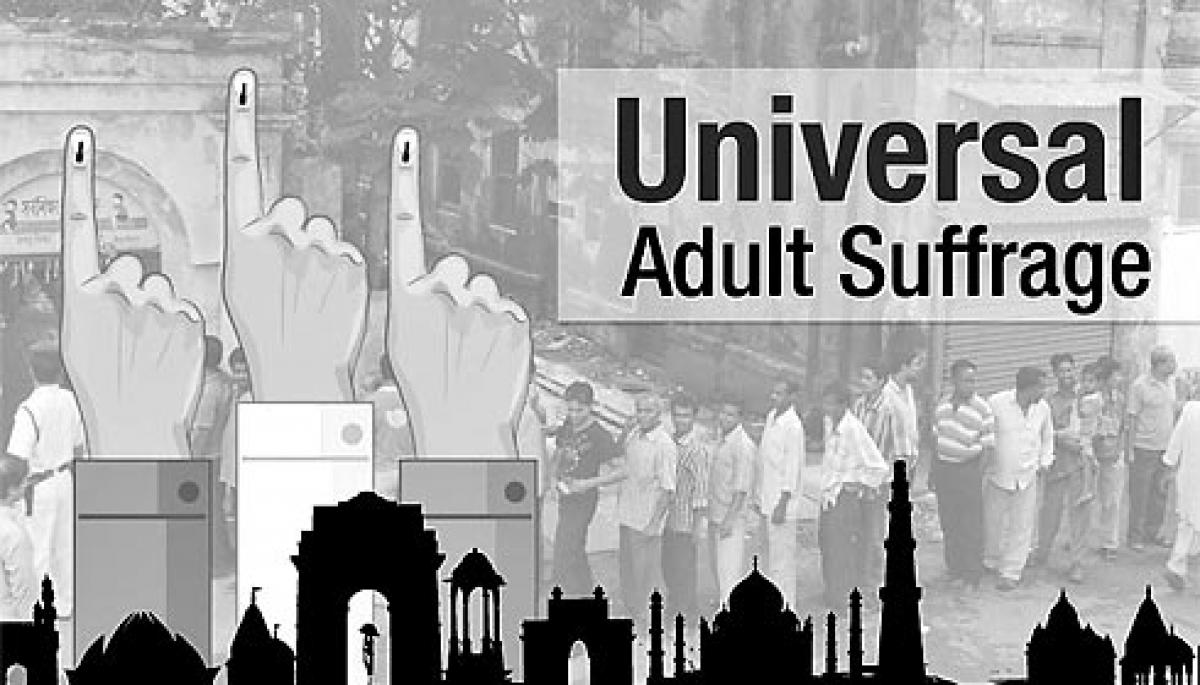Live
- Chaos at Pushpa 2: The Rule Trailer Launch in Patna as Fans Climb Barricades, Police Use Lathi Charge
- Japan sees nationwide temperature drop
- Electronics, engineering, agricultural goods propel India's export growth: CRISIL
- How Dhanush’s Role in Nayanthara’s Love Story Led to Legal Battle Over Film Clips
- Alice Capsey called up to England women’s T20I squad for South Africa tour
- Need Central govt action on pollution not politics, says CM Atishi as Delhi gasps
- US reports new E. coli outbreak linked to organic carrots
- Suriya’s Kanguva Surpasses Rs 140 Crore at Box Office in 4 Days
- Parkinson’s disease to surge to 3.15 million worldwide by 2033: Report
- Driving Innovation in Semiconductor Manufacturing: A Veteran's Role in New Product Management and Global Supply Chain Coordination





 The Supreme Court has upheld the Haryana Panchayat Law disqualifying illiterate people from contesting polls. This law prescribes SSC as minimum educational qualification for contesting in the elections to local bodies. The Haryana act and the Supreme Court judgment upholding it go contrary to the fundamental feature of universal suffrage guaranteed to all citizens of India by the Indian Constitution. It’s wrong to interpret universal suffrage as only right to vote. It implies right to contest, too. The right to run for office is sometimes called candidate eligibility, and the combination of both rights is sometimes called universal suffrage.
The Supreme Court has upheld the Haryana Panchayat Law disqualifying illiterate people from contesting polls. This law prescribes SSC as minimum educational qualification for contesting in the elections to local bodies. The Haryana act and the Supreme Court judgment upholding it go contrary to the fundamental feature of universal suffrage guaranteed to all citizens of India by the Indian Constitution. It’s wrong to interpret universal suffrage as only right to vote. It implies right to contest, too. The right to run for office is sometimes called candidate eligibility, and the combination of both rights is sometimes called universal suffrage.



